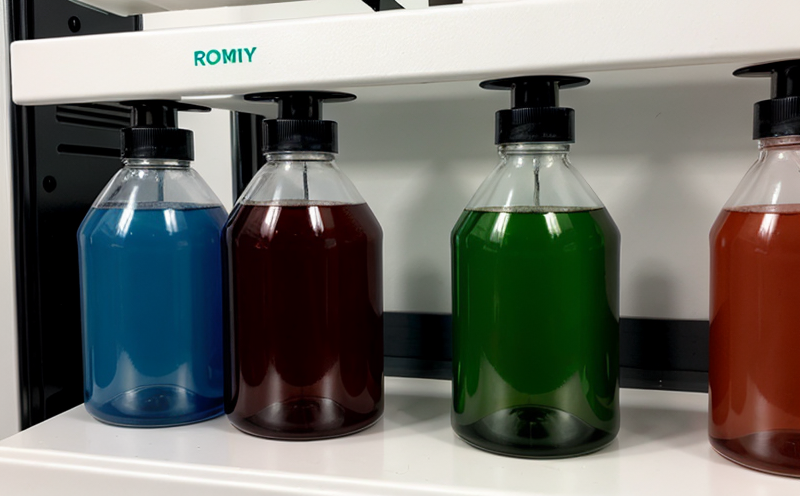EN ISO 1183 Density Reactivity Testing of Plastics
The EN ISO 1183 density-reactivity testing method is a standardized procedure that evaluates the physical properties and reactivity of various plastics under controlled conditions. This test measures both the bulk density and apparent density of the sample, which are critical parameters for understanding the material's behavior in different environments.
This method is particularly important for quality managers, compliance officers, R&D engineers, and procurement professionals working with polymer-based materials. The test provides insights into how a plastic behaves under specific conditions, aiding in the selection of appropriate raw materials or additives during the manufacturing process. Additionally, it helps ensure that products meet regulatory requirements and performance standards.
The EN ISO 1183 density-reactivity testing is applicable to thermoplastic materials, including polyethylene (PE), polypropylene (PP), polystyrene (PS), and others commonly used in the plastics industry. By conducting this test, manufacturers can optimize their processes, ensure product consistency, and meet international quality standards.
The standard specifies detailed procedures for preparing specimens, measuring dimensions, and calculating densities. It also provides a step-by-step guide on how to determine reactivity by exposing samples to various environments or chemicals. This ensures that the results are accurate and repeatable, which is essential for reliable product development and compliance with international regulations.
The density-reactivity test can be particularly useful in industries such as automotive, electronics, packaging, and construction, where material performance under specific conditions is crucial. By understanding how a plastic reacts to different environments or chemicals, manufacturers can make informed decisions about material selection and process optimization.
| Industry Sector | Application |
|---|---|
| Automotive | Evaluating the impact of different environmental conditions on plastic components used in vehicles. |
| Electronics | Determining how plastic materials behave under high-temperature or high-pressure environments. |
| Packaging | Assessing the suitability of plastics for packaging applications that require specific physical properties. |
| Construction | Evaluating the performance of plastic-based materials used in construction projects under various conditions. |
The test involves several steps, including specimen preparation, measurement, and calculation. Specimens are prepared according to the specified dimensions and then measured for their mass and volume. The bulk density is calculated by dividing the mass by the volume of the sample. Apparent density is determined by measuring the mass of a known volume of liquid displaced by the sample.
The reactivity test involves exposing specimens to various environments or chemicals, such as water, solvents, or heat, and observing any changes in physical properties. This provides valuable information on how the plastic behaves under specific conditions, which is critical for ensuring product quality and compliance with international standards.
Understanding the density-reactivity of plastics is essential for selecting appropriate materials and additives during manufacturing processes. It also helps ensure that products meet regulatory requirements and performance standards. By conducting this test, manufacturers can optimize their processes, ensure product consistency, and improve overall quality control.
Why It Matters
The EN ISO 1183 density-reactivity testing is a critical tool for ensuring the quality and performance of plastics used in various industries. By measuring both bulk and apparent densities, as well as assessing reactivity under specific conditions, this test provides valuable insights into how materials behave in real-world applications.
- Ensures product consistency across production batches
- Aids in selecting appropriate raw materials or additives during manufacturing processes
- Helps meet international quality standards and regulatory requirements
- Improves overall process optimization and quality control
The test is particularly important for industries where material performance under specific conditions is crucial. By understanding the density-reactivity of plastics, manufacturers can make informed decisions about material selection and process optimization.
Industry Applications
- Evaluating the impact of different environmental conditions on plastic components used in vehicles (Automotive)
- Determining how plastic materials behave under high-temperature or high-pressure environments (Electronics)
- Assessing the suitability of plastics for packaging applications that require specific physical properties (Packaging)
- Evaluating the performance of plastic-based materials used in construction projects under various conditions (Construction)
Why Choose This Test
- The test provides accurate and repeatable results, ensuring consistent product quality.
- It helps manufacturers select appropriate raw materials or additives during the manufacturing process.
- The test ensures compliance with international standards and regulatory requirements.
- By understanding how plastics behave under specific conditions, manufacturers can optimize their processes and improve overall quality control.
Additionally, this test is essential for ensuring that products meet the performance requirements of various industries. The results provide valuable information on material behavior in different environments or chemical exposures, which is critical for product development and compliance with international regulations.





